The Best Fluffy Pancakes recipe you will fall in love with. Full of tips and tricks to help you make the best pancakes.

M*A*S*H, a groundbreaking series that intertwined comedy with drama against a Korean War backdrop, captivated millions, culminating in a record-breaking finale audience. Its iconic characters and actors have left a lasting legacy, with unseen secrets now coming to light. Behind M*A*S*H’s scenes lay unexpected revelations: actors were often in the dark about their characters’ fates; some had real military experience; and Loretta Swit’s near departure from the show. Discover these intriguing secrets that shaped the beloved series.
#1: The Adaptation of M*A*S*H from Literature
M*A*S*H began in 1968 as MASH: A Novel About Three Army Doctors. The author, Richard Hooker, was a pseudonym for two men. Dr. H. Richard Hornberger had served as a military surgeon. W.C. Heinz was a seasoned journalist and writer. Together, they blended war, wit, and weary humanity.

The novel followed three doctors in a Korean War field hospital. It captured the chaos with humor and honesty—their storytelling balanced cynicism and compassion. The tone was sharp but heartfelt throughout. This book laid the groundwork for the beloved series. Long before syndication, it started with a scalpel and a pen.
#2: Role Exchanges Among the Cast
McLean Stevenson originally wanted to play Hawkeye, the quick-witted surgeon who became the show’s central figure. But casting had other plans. Instead, Stevenson stepped into the role of Lieutenant Colonel Henry Blake, the affable and often flustered commanding officer of the 4077th.

This decision reshaped the show’s chemistry, allowing Alan Alda to define Hawkeye while Stevenson brought warmth and chaos to the leadership post. His portrayal of Blake added a layer of vulnerability and heart to the camp, creating a memorable dynamic that helped set M*A*S*H apart from other sitcoms of its time.
#3: There Were Actual Military Veterans on the Show’s Set
Before they wore fatigues on M*A*S*H, Jamie Farr and Alan Alda had already known the weight of military service. After graduating from Fordham, Alda served a six-month tour with the U.S. Army Reserve, gaining firsthand insight into military structure.
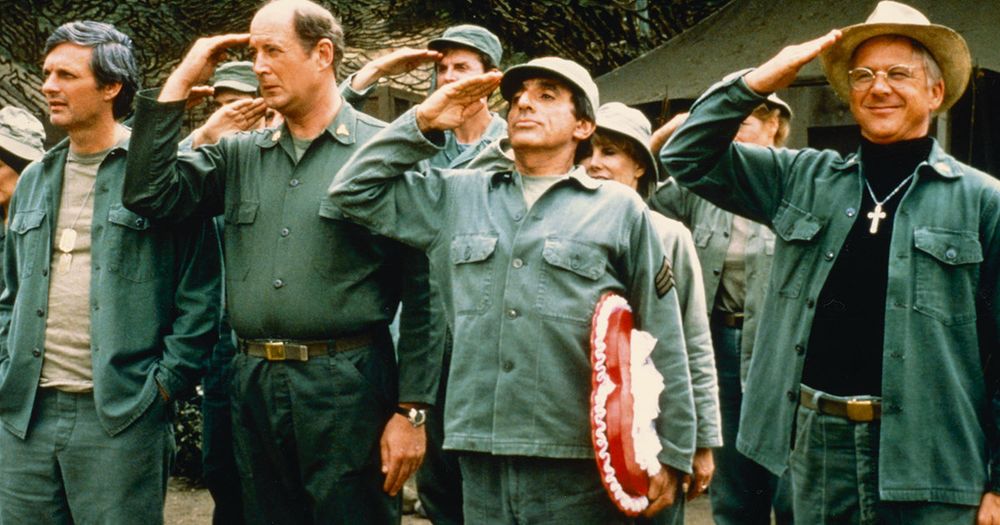
Farr’s experience ran deeper—he spent two years in active duty, stationed in Japan and Korea after the war had ended. Their time in uniform lent authenticity to their performances, infusing scenes with lived-in realism. Behind the humor and hijinks, both actors brought a layer of respect and understanding that echoed the gravity beneath the show’s comedy.
#4: The Friendly Feud Between Alan Alda and Mike Farrell
Editorial content
In his memoir, Alan Alda fondly recalls the spirited rivalry he shared with Mike Farrell on the set of M*A*S*H. Their camaraderie often spilled into playful contests, like handstands in full costume or sudden attempts to one-up each other’s athletic feats.
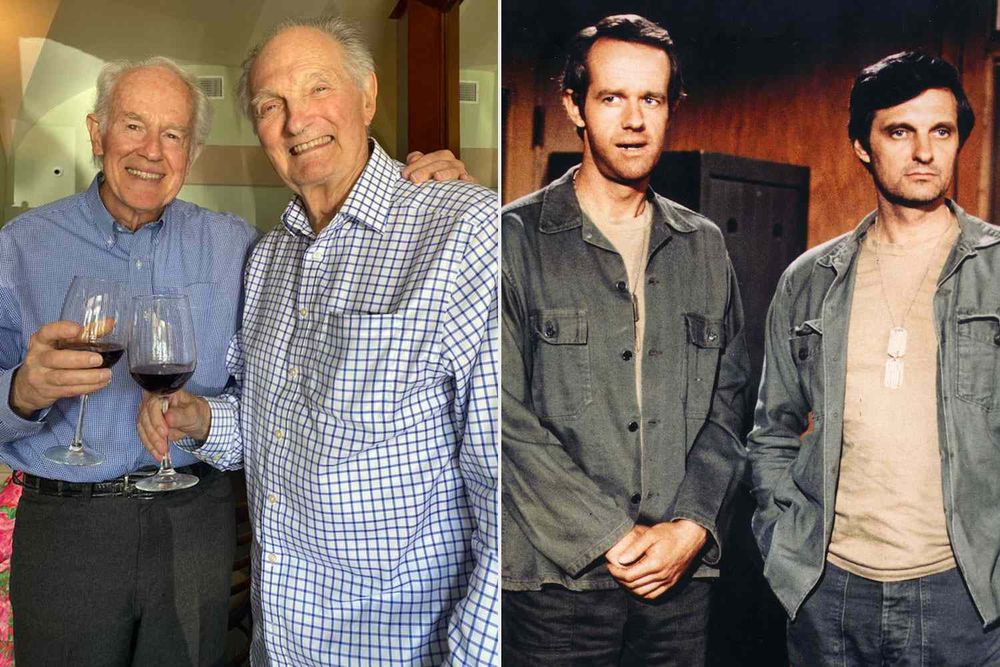
Farrell even habitually tried to trip Alda when he wasn’t looking, turning ordinary days into lighthearted battlegrounds. What might have been tension between two leads instead became a brotherly bond laced with humor. Off-camera, their antics mirrored the chemistry they brought to the screen: competitive, mischievous, and rooted in mutual respect and affection.
ADVERTISEMENT
#5: Robert Klein Declined Playing Trapper John
Comedian Robert Klein was offered the chance to play Trapper John in M*A*S*H, but he turned it down—an intriguing “what if” in TV casting lore. The role ultimately went to Wayne Rogers, yet Klein hardly missed a beat. His stand-up career flourished, marked by sharp observational humor and trailblazing HBO specials.
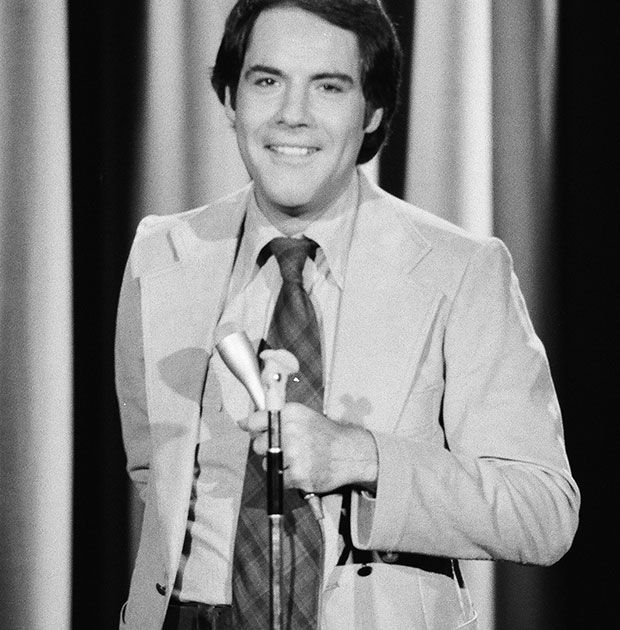
On screen, he steadily built a résumé of nearly 100 acting credits, proving that his path, though divergent, was equally impactful. While he never wore army scrubs on primetime, Klein carved out his legacy—one punchline, one performance, and one decision at a time.
#6: Wayne Rogers Unique Contract
Wayne Rogers, who brought charm and wit to Trapper John McIntyre on M*A*S*H, made a rare move in Hollywood—he walked away on his terms. Unlike most cast members, Rogers hadn’t signed a binding contract, allowing him to exit when creative differences surfaced.
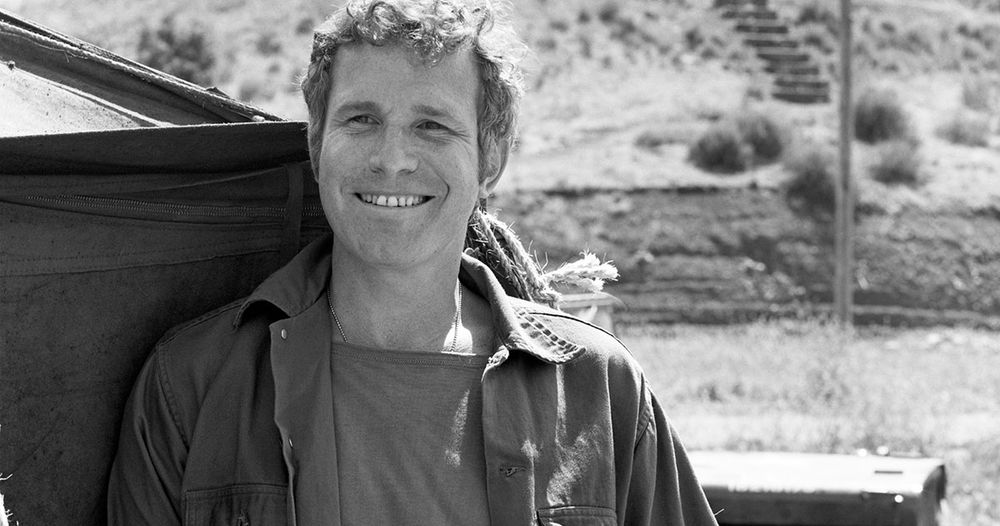
Frustrated by the growing focus on Alan Alda’s Hawkeye, Rogers quietly slipped away after Season 3, leaving producers scrambling. His departure was as strategic as it was symbolic, cementing his off-screen savvy. Rather than fading, Rogers transitioned smoothly into finance and media, proving he was more than just a sidekick in fatigues.
#7: The Unexpected Evolution of Klinger
Klinger was never meant to last. Introduced as a one-off joke—a soldier in dresses trying to snag a Section 8 discharge—he was also originally written as gay. But Jamie Farr’s offbeat brilliance transformed the role into something unforgettable.
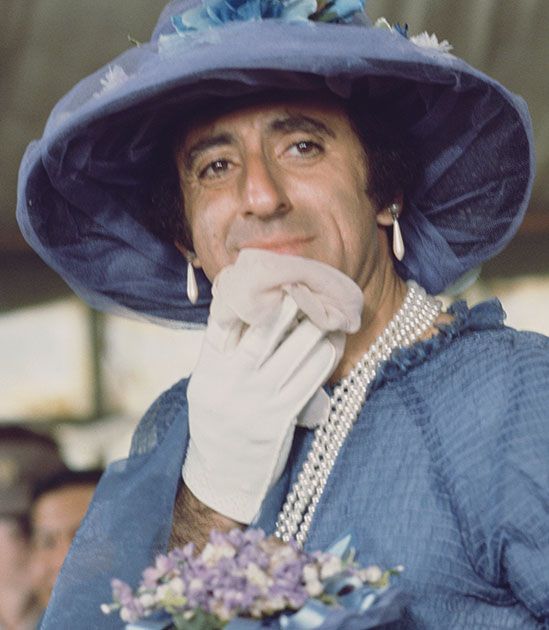
Audiences loved Klinger’s wild outfits and even wilder schemes, but beneath the wigs and heels was a loyal, complex man who deeply valued his comrades. The writers took note. What began as a gag became a character with heart, grit, and remarkable growth. Klinger endured, not because he was outrageous, but because he was undeniably human.
#8: Keep the Laughs to a Minimum
From the outset, M*A*S*H’s producers wanted a bold move—no laugh track. They believed the show’s emotional weight and wartime themes deserved breathing space. CBS, wary of deviating from sitcom norms, pushed back. A compromise emerged: scenes in the operating room would play without canned laughter.
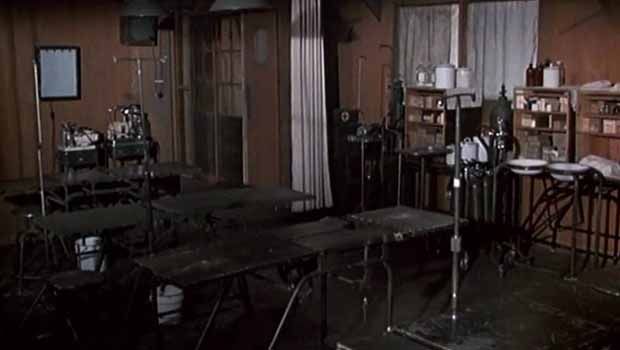
Over time, that compromise expanded. The intrusive chuckles faded as the series matured and leaned further into drama. The laugh track’s volume lowered, its presence thinned, and the tone of M*A*S*H evolved. What started as resistance turned into subtle surrender, allowing the show to honor its characters’ humanity with the respect they deserved.
#9: The M*A*S*H Pilot Episode
M*A*S*H launched on September 17, 1972, with a pilot to set the tone for television history. Larry Gelbart wrote the script in an astonishing three days, infusing it with sharp wit and emotional depth. Gene Reynolds brought it to life with steady direction that captured chaos and compassion.
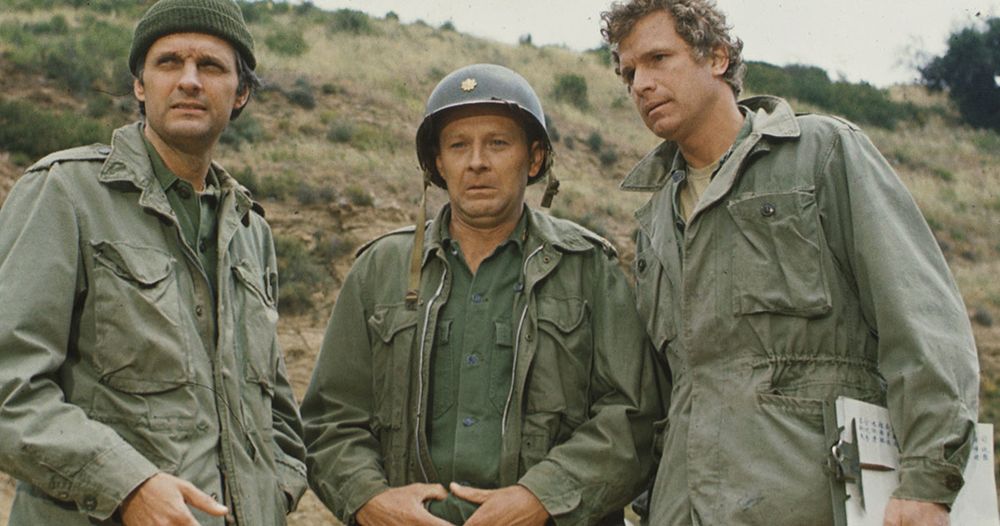
Their combined brilliance didn’t go unnoticed—both men earned Emmy nominations, and Reynolds took home a Directors Guild of America Award. That opening episode didn’t just introduce characters; it established a groundbreaking blend of comedy and commentary. From day one, M*A*S*H proved it was more than just another sitcom.
#10: Secrets Hidden From the Cast by the Show
Only Alan Alda knew. As the M*A*S*H cast prepared to film the season three finale, the shocking fate of Lieutenant Colonel Henry Blake was kept secret—even from McLean Stevenson himself. Just before cameras rolled, Alda was quietly informed that Henry wouldn’t be going home—that his character would die in a surprise twist after receiving his discharge.
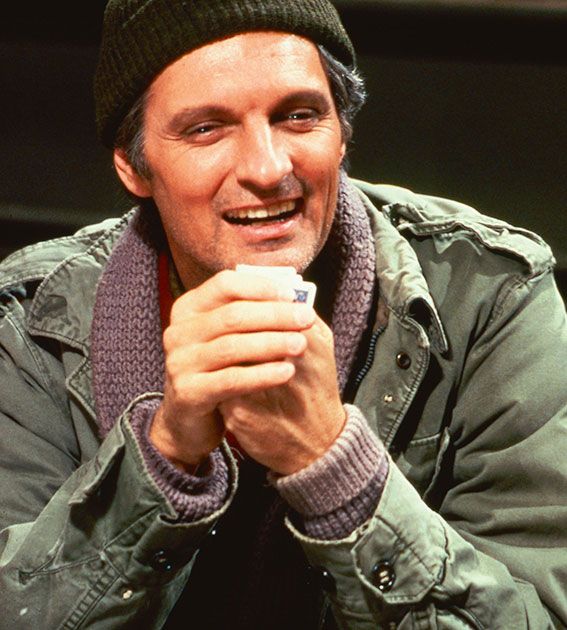
The move was bold, emotional, and controversial, orchestrated to hit like a gut punch. By keeping the truth under wraps, the creators captured raw, authentic reactions from the cast, preserving the heartbreak that made the moment one of television’s most unforgettable farewells.

